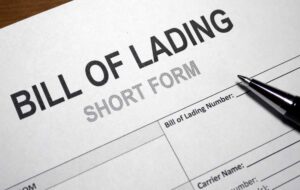By: Rafiat O. Rufai.
TABLE OF CONTENT
- Introduction
- Case scenario
- Doctrine of privity of contract
- What is contract?
- Meaning of Privity
- Privity of contract
- Applicability under Nigerian law
- Third Party Rights
- Who is a Third-party?
- Instances where third parties can sue
- Recommendation
- Conclusion
- References
INTRODUCTION
It is an established rule that only parties to a contract can benefit and enforce obligations arising under it. Over time, there has been room for the doctrine to develop and evolve with the emergence of new cases, to some extent the principle has been modified to give room for business efficacy especially where the right of the third party is more pronounced to grant him benefit for a better commercial transaction This article highlights the principle of privity of contract and examines areas third-parties are recognized.
CASE SCENARIO
PCW bought a building of apartments which they intend to rent out after redecoration of the building. PCW then signed a contract with Mines décor, a company which specializes in interior and exterior decorations to furnish and decorate the building to modern style and for residential purpose. Three months after the release of the building to PCW, at the inspection of the building it was discovered that some of the electrical appliances supplied by ST Engineering broke down while the air conditioners released a gaseous substances with pungent odour which led to the building not qualified for habitation by the inspectors. PCW, aggrieved filed an action against ST engineering to claim compensation for the injury and damages incurred.
How does this scenario explain the privity of contract? Who has the right to sue? Who is a third party? What cause of action can PCW take to compensate for the damages incurred?
DOCTRINE OF PRIVITY OF CONTRACT
The doctrine of privity of contract is one of the principles guiding the execution of a contract. The principle must be considered before a contract is enforced.
WHAT IS CONTRACT?
Contract is a legally enforceable agreement that creates, defines, and governs mutual rights and obligations among its parties. Niki Tobi JCA defined contract as:
“An agreement between two or more parties which creates reciprocal legal obligations to do or not to do particular things”.
Also, in AKINYEMI v. ODU’A INVESTMENT CO. LTD (2012) 17 NWLR (pt1329) 209, the Supreme Court defined contract according to Black’s law dictionary as: “An agreement between two or more parties creating obligations that are enforceable or otherwise recognizable under the law.”
A contract is the finalized stage of most agreements, for an agreement to become a contract there are other aspects to be considered. Some of which include offer and acceptance, intention of parties, legal capacity, consensus of the minds etc.
A party to a contract is one who holds the obligations and receives the benefits of a legally binding agreement. Generally, only two parties can enter into a contractual agreement, when two parties enter into an agreement, there are two distinct roles each play: the offeror and the offeree. The offeror is the party that makes the promise, while the offeree is on the receiving end of the promise.
MEANING OF PRIVITY
Privity is an interest in a transaction, contract, or legal action to which one is not a party arising out of a relationship to one of the parties
Merriam Webster dictionary defines privity as:
“A relationship between persons who successively have a legal interest in the same right or property”.
According to Black’s law dictionary Seventh edition,
“Privity is the connection or relationship between two parties, each having a legally recognized interest in the same subject matter (such as a transaction, proceeding, or piece of property).”
PRIVITY OF CONTRACT
The doctrine of privity of contract is a common law principle which provides generally, a contract cannot confer rights or impose obligations upon any person who is not a party to the contract.
In REBOLD INDUSTRIES LIMITED v. MAGREOLA & ORS (2015) 8 NWLR (pt1461) pg201, the apex court defined privity of contract as:
“The connection or relationship which exists between two or more contracting parties”
The premise is that only parties to contract should be able to sue as to enforce their rights or claim damages, as such third parties are not allowed to interfere.
The doctrine of privity indicates that a person cannot acquire rights or be subject to liabilities arising under a contract to which he is not a party. It does not mean that a contract between A and B cannot affect the legal rights of C directly or indirectly.
The Court of Appeal in TECHNIP V. AIC LIMITED & ORS (2016) 2 NWLR (pt1497) pg421 said:
“As a general principle, a contract affects only the parties to it and cannot be enforced by or against a person who is not a party to it, even if the contract was made for his benefit and purports to give him the right to sue or to make him liable upon it. In order words, a contract cannot confer or impose obligations on strangers to it.”
For example, in the above scenario, the contract for supply of electrical appliances was between Mines décor and ST Engineering, PCW is the third party who benefits from the contract. Virtue of the above ruling, only Mines décor can bring an action against ST engineering for the supply of faulty appliances, PCW though is the beneficiary and the one bearing the most damage cannot enforce the contract. There is privity between Mines décor and ST engineering while PCW stands as a stranger to the contract.
The doctrine of privity emerged alongside the doctrine of consideration, the rules of which state that consideration must move from the offeror, if nothing is given for a promise of something to be given in return, then the promise is not legally binding (unless promised as a deed). Only a party who has furnished a promise can enforce a contract.
The doctrine was established in the UK case of TWEEDLE v. ATKINSON 30 L.J.Q.B. 265, in this case the plaintiff was unable to sue the executor of his father-in-law, who had promised to the plaintiff’s father to make payment to the plaintiff on the plaintiff’s marriage to his daughter. It was held by the court that plaintiff could not enforce the promise made by the plaintiff’ father-in-law to the plaintiff’s father.
The decision in the case of DUNLOP PNEUMATIC TYRE CO. LTD v. SELFRIDGE (1915) AC 847, became a landmark in the development of the doctrine of privity of contract, as it laid the foundation for the doctrine.
The House of Lords affirmed the doctrine of privity of contract in the case of SCRUTTONS LTD. v. MIDLAND SILICONES LTD [1962] AC 446 by deciding that a person could not take the benefit of a limitation of liability clause in a contract that he was not a party to.
APPLICABILITY UNDER NIGERIAN LAW
Privity of contract came under the Nigerian law as a Received English Law and a Statute of General application before 1900. It first came up for adjudication in the case of CHUBA IKPEAZU v. AFRICA CONTINENTAL BANK (1965) NMLR pg304, the Court held with reference to the Tweddle case.
“Generally, a contract cannot be enforced by a person who is not a party, even if the contract is made for his benefit and purports to give him right to sue upon it– Tweddle vs. Atkinson 30 L.J.Q.B. 265. This view was supported by the House of Lords in Dunlop Pneumatic Tyres Co. Ltd vs. Selfridge and Company Ltd. (1915) AC 847”
In the study of the English doctrine, there are two aspects of the common law doctrine of privity. These are:
- No one except a party to a contract can acquire rights under it, and
- No one except a party can be subjected to liability under it.
The first aspect is based on the elemental principle of contract that only the parties whom made the offer and acceptance can furnish consideration and is entitled to affect the agreement.
The justification for the second aspect is that a person should not, generally, have contractual obligations imposed on him without his consent. This is illustrated in the case of UBA PLC & Anor. v. JARGABA (2007)11 NWLR (pt1045) 247 SC @ Pg. 256 ratio 15:
“The doctrine of privity of contract is all about sanctity of contract between parties to it. The doctrine will not apply to a non-party to the contract who may have, unwittingly, been dragged into the contract with a view of making him a shield or scapegoat against the non-performance by one of the parties”
In CAP Plc. v. Vital Investment Ltd. [2006] 6 NWLR (pt. 976) 220 at 264, Salami JCA (as he then was) gave a further reason why the principle in Tweedle should be held sacrosanct thus:
“The reason for the enunciation of the principle of privity of contract is based on Consensus ad idem; it is only the contracting parties that know what their enforceable rights or obligations are and therefore a stranger should not be saddled with the responsibility.”
Consensus ad idem means that there is a meeting of the mind by both parties to the contract, which is based on the intention to be bound on certain commonly agreed terms.
However due to the rigidity of the doctrine, and the impartiality and injustice faced by third parties which is not the aim of the law, some modifications were made to the doctrine in order to accommodate third-parties. This led to instances where third party beneficiaries can exercise some rights or incur liabilities as intended by parties to the contract
THIRD PARTY RIGHTS
A contract or its performance can affect a third party. Privity of contract occurs only between the parties to the contract; howbeit, to every general rule there is an exceptions, the privity of contract is not exempted.
To enforce a contract, intention of parties is largely considered. The terms of contract agreed shows the intention of parties, this determines if a contract is enforceable at law and its bindingness, as well as if a third-party is involved in the contract and the extent of a third-party’s entitlement to such contract.
The importance of this is shown in Ede v. Access Bank Plc. [2020] 4 NWLR (Pt. 1715) 417 CA at Pg. 424-425 ratio 8:
“The law always accords respect to what parties agree to bind them in their contract agreements, provided the clause or what they agreed upon is lawful. But they or the beneficiary of such clause can waive the right to enforce the same.”
- WHO IS A THIRD PARTY?
Black’s law dictionary Seventh Edition, defined third-party as:
“One who is not a party to a lawsuit, agreement, or other transaction but who is somehow involved in the transaction; someone other than the principal parties.”
A third-party is an individual who is not directly involved with a transaction but may be affected by it. A third-party can get injured, incur damages, or be denied of his right through a contract he is not party to, in these instances the law allows for a third-party to sue on the contract to enforce its remedies.
This was the ruling of the supreme court in Heritage Bank Ltd. v. Bentworth Fin. (Nig.) Ltd. [2018] 9 NWLR (Pt. 1625) 420 at Pg. 424 ratio 3, where it was held that:
“When a third-party is injured by a transaction arising from the contract of two other persons, the said third-party is free to sue on the basis that the performance or otherwise of the contract has caused the third-party some damages.”
This allows for third-parties to be protected from implacable mischief of parties who intend to take advantage of the doctrine of privity of contract and to prevent a miscarriage of justice. Common law recognizes three significant ways through which third-parties are joined to a contract:

- THIRD-PARTY BENEFICIARY:
The third-party generally has no legal rights in a transaction unless the contract is for their benefit. They become a third-party beneficiary with the authority to have the contract enforced and gain reward from the terms of a contract. In Ezex Courier Services Ltd v. Ugwu & Anor (2016) LPELR-41478, the Court of Appeal held that:
“Generally third parties or strangers to a contract cannot sue or be sued on it. But, it appears a third party beneficiary may legally enforce the contract, but only after his or her legal rights have already been vested, either by the assent of the contracting parties or by justifiable reliance on the promise.”
When a contract is performed, not everyone who may benefit from the contract is specifically stated as a third-party beneficiary in the contract. These persons are referred to as incidental beneficiaries and have little right regarding the contract. Only a beneficiary who is generally stated in the contract has the authority to enforce the contract, this is known as an intentional beneficiary.
- ASSIGNEE:
An assignment is a legal term used in the context of the law of contract and of property. In both instances, assignment is the process whereby a person, the assignor, transfers rights or benefits to a third-party, the assignee.
The Supreme Court in Julius Berger (Nig.) Plc v. T.R.C.B. Ltd. [2019] 5 NWLR (Pt 1665) 219 at 223 ratio 4, said on the meaning of assignment:
“Assignment is the right to transfer a chose in action, and a chose in action is essentially the right to sue. It is a personal right to property which can only be claimed or enforced by action and not by taking physical possession.”
The right or benefit being assigned may be a gift (such as a waiver) or it may be paid for with a contractual consideration such as money. If any words in the contract show intent to transfer rights, that is enough to constitute an assignment. The assignee does not need to make any performance before he can enforce the contract. See A.T.S. & SONS v. B.E.C. (Nig.) Ltd. [2018] 17 NWLR (Pt. 1647) 1 SC at Pg. 8 ratio 4:
“A beneficiary of an assignment of a chose in action does not need to furnish any consideration to the debtor before enforcing the right that has accrued therefrom.”
The assignor (the one who assigned the rights) drops out of the picture and the obligor (the one who is obligated to perform) must perform for the assignee except when the contract arises out of personal considerations. The assignee has the right to bring an action to enforce the contract where there is any form of fault in the contract.
Julius Berger (Nig.) Plc v. T.R.C.B. Ltd. [2010] 9 NWLR (Pt.1198) 80 CA at Pg. 89 ratio 15:
“A legal chose in action is a right that can be enforced by an action at law, as for example, a debt due under a contract. The only condition for enforcement of the right by an assignee is for him to join the assignor in the claim against the debtor.”
Delegates:
The delegation of the duties of a contract refers to the transfer of those obligations. The person named in the contract responsible for the duty is known as the delegate. Although the delegate must perform the contract, the delegator (or the person originally contracted to perform) remains liable for the performance.
INSTANCES WHERE THIRD PARTIES CAN SUE
There are situations where third parties have the right to enforce a contract, these form the exceptions to the doctrine of Privity of Contract allowing third parties to sue and some obligations imposed on them. Some situations where third-parties can enforce a contract include:
- AGENCY
Many contracts are made through intermediaries and will be subject to the law of agency. Agency is the relationship which exists between two persons, one of whom (the principal) expressly or impliedly consents that the other (the agent) should act on his behalf, and the other of whom (the agent) similarly consents so to act or so acts.
According to the American Restatement of the Law, Agency is the fiduciary relation which results from the manifestation of consent by one person to another that the other shall act on his or her behalf and subject to her control, and consent by the other so to act. It deals with a set of contractual, quasi-contractual and non-contractual fiduciary relationships that involves a person, called the agent, that is authorized to act on behalf of another (called the principal) to create legal relations with a third party.
Fridman’s definition of agency in his book Law of Agency is suggested as a tentative, comprehensive, and brief description of what agency involves. According to him,
“Agency is the relationship that exists between two persons when one, called the agent, is considered in law to represent the other, called the principal, in such a way as to be able to affect the principal’s legal position in respect of strangers to the relationship by making of contracts on the disposition of property.”
Agency separates and regulates the relationships between:
- Agents and principals (internal relationship), known as the principal-agent relationship;
- Agents and the third parties with whom they deal on their principals’ behalf (external relationship); and
- Principals and the third parties when the agents deal.
As a result of this relationship, the principal acquires rights (and liabilities) under contracts made by the agent on his behalf with third parties and is enforceable by the principal although not a party to the contract and the third party can also sue the disclosed principal to enforce performance of any obligations under the contract.
This was the decision held in STANBIC IBTC BANK v. LONGTERM GLOBAL CAPITAL LTD. & ORS (2018) 10 NWLR (Pt. 1626) 96 CA at 102 ratio 3, where Georgewill, J.C.A. said:
“It is also the law that a disclosed principal may sue or be sued by a third party on a contract made on its behalf and in respect of any money paid or received on his behalf by his agent acting within the scope of his authority”
The agent is free from any liability or obligations in respect to the contract as long as he acts within his scope of his authority. This was affirmed by the Court of Appeal in the case of Unity Bank PLC v. B.C.C. (Nig) Ltd. [2020] 16 NWLR (pt. 1749) 132 at Pg136 ratio 2:
“An agent acting on behalf of a known and disclosed principal incurs no liability. This is because the act of the agent is the act of the principal. The situation is as if it was the principal that did what the agent did or omitted to do. The common law rule is expressed in the Latin maxim “qui fact per alium facit per se ipsam facere vindetur” which means; He who does an act through another is deemed in law to do it himself.”
The legal implication of an agency relationship is that any act done by the agent on behalf of the principal would be binding on the principal. However, contracts that do not include principal/agent relationship are not covered, that is where the agent acts outside the scope of his authority, the principal will not be bound by any obligation or liabilities arising from it.
- COVENANTS ON LAND
A covenant is an agreement that can be under seal, implied, express, or usual in which a party (the covenantor) promises another (the covenantee) that he will or will not engage in a specified activity in relation to the defined area of land. A positive covenant imposes an obligation to do a specified thing while a negative covenant imposes an obligation not to do a specified thing in relation to the land.
The law allows certain covenants (whether positive or restrictive) to run with land to benefit (or burden) people other than the original contracting parties. The relevant covenant may relate to freehold land or leasehold land. See Williams v. T. A. Hammond projects ltd. (1988) 2 SC (Pt II) 239
The doctrine of privity created difficulty when land is sold which has a covenant running with it. At common law the burden of a covenant is not recognized only covenants which serve as an easement or a benefit, this was the decision held in Austerberry v. Oldham corporation (1885) 29 Ch.D. 750. A restrictive covenant can only be enforced where the defendant had prior knowledge of it.
The rule as to covenants on land both burden and benefit may be enforceable against a party without notice, was established by Equity in the case of Tulk vs. Moxhay (1848) 2 Ch. 774, where the Plaintiff sold a garden in the Centre of land he owned to Elms. The parties agreed to a covenant that he would not build on it but preserve it in its present state. After a series of conveyances, the land was sold to the defendant who although being aware of the covenant, sought to build on it. The plaintiff therefore sought an injunction which was granted on the ground that the defendant had prior knowledge of the covenant.
- TRUST
The relationship between a trustee and a beneficiary under a trust is regarded as a common instance where the doctrine of privity of contract is exempted. Trust is a concept created by the courts of equity.
A trust arises where property is handed over to B (trustee) by A (settlor) to hold for the benefit of C (ces tui que trust or beneficiary). A trustee would be regarded as a trustee for a third party under a contract and will therefore confer enforceable rights on the third party in equity. The beneficiary who is not a party to the contract, but for whose benefit the trusteeship was created, can sue the trustee.
The Supreme court in REBOLD INDUSTRIES LIMITED v. MAGREOLA & ORS (2015) 8 NWLR (pt1461) pg201 at 216 ratio 6, held
“Where a trust is created for the benefit of a third party who was not a party to the agreement containing a promise creating the said trust, the third party can enforce the promise against the promisor only if the third party can show that the contracting promisee is a trustee for the third party and that the promise was intended to create a trust and that the third party joins the promise in the action to enforce the promise.”
Keeton on his part described trust as the relationship which arises whenever a person called the trustee is compelled in equity to hold property, whether real or personal, and whether by legal or equitable title, for the benefit of some persons (of whom he may be one and who are termed as ces tui que trust) or for some object permitted by law, in such a way that the real benefit of the property accrues, not to the trustee, but to the beneficiaries or other objects of the trust. See Norwich City Council v Harvey [1989] 1 WLR 828
Where a trustee holds, property, such property is held in trust for the benefit of designated beneficiaries. Legal ownership rights are vested on the trustee while the Beneficiaries retain the beneficial ownership interests in any property.
The concept of a trust is recognized under Nigerian Law in relation to investments amongst others. There are two categories of Trust:
- Public trusts (which are in some cases charitable trusts) are trusts for certain selected purposes; which are created for the purpose or use of the community, and the attorney general undertakes responsibility for their enforcement.
- Private trusts, on the other hand, are trusts created for the benefit of specific persons, such as family members, who are known as ‘beneficiaries’, and having legal right to enforce the trust.
There is no specific statute governing private trust in Nigeria. Therefore, reliance is placed on Received English Law (such as the Trustee Act, 1893) and decided cases.
Public trusts, however, are extensively regulated by the stipulated provisions of the law including Trustees Investments Act 2004 and laws of various states e.g Trustee Law (Cap 156) Laws of Ondo State 2006, Public Trustee Law (Cap P18) Laws of Ekiti State 2010 and the Securities and Exchange Commission (SEC).
- COLLATERAL CONTRACTS
This is a contract that comes with the main contract between two parties. This contract may involve either of the parties and the third party. The leading case on collateral contracts is the case of Shanklin Pier v. Detel Products Ltd.
It is a single term contract made in consideration of the party whose benefit the contract operates agreeing to enter the main contract. It is between a third-party and one of the main contracting parties. Thus, the two contracts are connected and it may be enforced even though it forms no constructive part of the original contract.
Collateral contract is a promise which is not a term of contract. It exists beside the main contract as a separate contract. It can be made by both parties who enter into the main contract (Bipartite collateral contract) or between one of the main parties and a third-party (Tripartite collateral contract).
- INSURANCE CONTRACTS
Another exception to privity of contract is third party beneficiary in insurance contracts. Beneficiaries under insurance contracts have the right to sue the insurance company where there has been non-performance of any obligations even though they were not parties to the original contract. Example of this can be seen in the Married Women’s Property Right 1882 and Motor Vehicles (Third Party) Insurance Act
Section 11 of the Married Women’s Property Right 1882 provides that:
“Where a man insures his life for the benefit of his wife or children or where a woman insures her life for the benefit of her husband or children, the policy shall create a trust in favour of the objects therein named and the moneys payable under any such policy shall not, so long as any object of the trust remains unperformed, form part of the estate of the insured, or be subject to his or her debts.”
Under section 11 of the 1882 Act, a spouse or children of an insured can bring an action to claim the benefit of the policy or when there is default against the insurance company, even though they are not parties to the insurance contract.
Another exception to the privity of contract rule is to be found in section 6(3) of the Motor Vehicles (Third Party) Insurance Act Cap. M22, LFN, 2004, whi h provides that:
“Notwithstanding anything contained in any written law, a person issuing a policy of insurance under this section shall be liable to indemnify the persons or classes of persons specified in the policy in respect of any liability which the policy purports to cover in the case of these persons or classes of persons.”
A third party can sue an insurance company or the insured even though he is neither a beneficiary nor a party to the contract between the insurance company and the insured. As long as the third party sustains an injury or incurred damages through the actions of the Insured, then he has a claim and can bring an sue either of the parties.
This was the decision held in Unity Life And Fire Insurance Co. V. Ladega(1996) 1 NWLR (Pt 427) where this court Per OGUNTADE JCA (as he then was) said as follows:
“Under the common law, the Plaintiff in this matter, could not have joined the appellant as a party to the suit brought against the persons said to be responsible, for the Plaintiff’s injuries. However, Section 11 of the Insurance (Special Provisions) Decree No. 40 of 1988 altered the position. The Section provides:
“Where a third party is entitled to claim against an insured in respect of a risk insured against, he shall have a right to join the insurer of that risk in an action against the insured in respect of the claim: provided that before bringing an application to join the insurer, the third party shall have given to the insurer at least thirty days notice of the pending action and of his intention to bring the application.”
- CHARTER-PARTY CONTRACTS
In situations where a vessel is hired out during a charter and the ownership of the vessel changes and where the new owner decides to interfere with the hirer’s rights, the hirer can go to court to prevent the new owner from interfering with his rights even though the new owner was not a party to the initial contract.
This was the case in Lord Strathcona Steamship Co. vs. Dominion Coal Co (1924) AC 128, where a ship was chartered to the respondent for ten (10) years with the option of an additional eight years. The Appellant subsequently came into ownership of the vessel and was aware of the charter. The appellant then sought to interfere with the right of the respondent. The Respondent sought an injunction against the appellant which was granted and upheld on appeal to the Privy Council.
- BILLS OF LADING
The bill of lading is a written contract between those who are expressed to be parties to it. These are in common scenarios the Shipper, the Carrier and the Consignee. A bill has three functions: –
- It constitutes a receipt for the goods which have been received for shipment.
- It constitutes a contract for the carriage of the goods and delivery thereof as it contains the terms and conditions of carriage.
- It is evidence that the holder of it has the property in the goods, in other words, it is a document of title.
A bill of lading can be endorsed to a third party who is not a party to the bill of lading but to whom property in the goods have passed. Such endorsee has a right to claim, sue or be sued under the terms of the bill of lading.
In the case of BASINCO MOTORS LTD Vs. WOERMANN-LINE & ANOR (2009) 13 NWLR PT 1157 149 at Pg. 180-181 paras H-A, The Supreme Court held that
“It is however now settled by a plethora of cases that by virtue of Section 375 (1) of the Merchant Shipping Act 1990, only a consignee of the goods named in a bill of Lading or an endorsee whom the property in the goods have passed and by virtue of those facts will be able to sue on a bill of lading contract.”
- TORT OF NEGLIGENCE
The tort of negligence can also lead to situations where the privity rule will not apply. This is where the negligence in question constitutes the breach of a contract to which a personal injury occurs because of negligence. The negligent party can be sued by third parties who have not entered a contract with the negligent party.
In Donoghue v. Stevenson, a friend of Mrs Donoghue bought her a bottle of ginger beer, which contained the partially decomposed remains of a snail. Since the contract was between her friend and the shop owner, Mrs Donoghue could not sue under the contract, but it was established that the manufacturer was in breach of a duty of care owed to her.
This also extend to manufacturers’ warranties and product liabilities for their products. It used to be the case that a lawsuit for breach of warranty could only be brought by the party to the original contract or transaction; so, consumers would have to sue retailers for faulty goods because no contract existed between the consumer and the manufacturer. In Mainstreet Bank Ltd. v. Chahine [2015] 11 NWLR (Pt. 1471) 479 at Pg. 484 ratio 2, the Court of Appeal said:
“Privity of contract denotes the relationship between the parties to a contract, allowing them sue each other but preventing a third party from doing so. However, the requirement has been relaxed under the modern laws and doctrine of implied warranty, which allows a third party beneficiary or other foreseeable user to sue the seller of a defective product.”
The third-party who wants to sue a negligent party must proof to the court that there is a duty of care owed to him by the defendant and that there was a breach of the duty which led to injury or damage on the third-party.
This was highlighted by the Court of Appeal in DHL Int’l Nig. Ltd v. Eze-Uzoamaka [2020] 16 NWLR (Pt 1751) 445 at Pg. 457 ratio 12, where it was held that:
“The three ingredients of negligence, which a plaintiff must establish are:
- That the defendant owed him a duty of care,
- That there was a breach of the duty, and
- That the breach caused him injury or damage.”
In Nigeria, the theories of liability available to product liability claimants is fault liability. Product liability claims are usually based on contract and tort law, as well as Nigerian consumer protection statutes.
- LETTERS OF CREDITS
This is used when sum of money is kept with the bank to be used to pay the supplier once goods sought have been delivered. The bank would usually through its foreign agent inform the international supplier that a letter of credit has been opened in his favour. The cost of goods would then be paid upon confirmation that the goods have been supplied according to the contract terms.
The court of Appeal in Felshade Int’l (Nig.) Ltd v. T.B (BV) Amsterdam [2020] 14 NWLR (Pt 1743) 107 at Pg 117 ratio 10 said:
“The purpose of letter of credit is to finance (pay for) international contracts for sale of goods. A letter of credit is a promise by the buyer’s bankers to pay money to the seller of goods in return for the shipping documents, which when presented the buyer’s bankers pays the seller the contract price.”
In Nwagwu v. F.B.N. Plc. [2008] LPELR 4478, reference was made to United City Merchants (Investments) Ltd V. Royal Bank of Canada (1983) A.C. HL. 168, where Lord Diplock said,
“There is paucity of direct authority in both the English and Privy Council cases and were in the courts in the United States of America. That being the case, it is no wonder them, that there is no precedent in this country to turn to in this matter, the more so as this country is quite young in entering into international commercial credit, which type of transaction is based on documents. Lord Diplock separated the contracts into four parts these are:-
(a) The contract between buyer and the oversea seller.
(b) The contract between the buyer and the local issuing bank.
(c) The contract between the issuing bank and its oversea confirming or correspondent bank and
(d) The contract between the correspondent bank and the seller.
In respect of the first contract between the buyer and the oversea seller, only the buyer and the seller are involved. Indeed, without the underlining contract above, the other three contracts would not arise. The Buyer and the Seller negotiate and agree upon the terms for the purchase of the goods, the mode of the’ credit and the mode of transportation or dealing of the goods from the country of purchase to the country to which the goods are to be delivered.”
Therefore, the buyer who is not a party to the contract between the issuing bank and the oversea correspondent bank can sue on the contract as the buyer has a claim in the contract, the buyer would enjoy the benefit under the contract and therefore also has a right to sue the bank or the other party in case of default.
- GARNISHEE PROCEEDINGS
Garnishee proceeding is a judicial proceeding in which a creditor asks the Court to order a third party who is indebted to a debtor to turnover to the creditor any of the debtor’s property in possession of that third party.
Garnishee Proceedings is one of the methods of enforcing monetary judgment. The need often arises when a Judgment Creditor finds it challenging to recover the debt owed to him by the Judgment Debtor. Hence, the Court on the application of the Judgment Creditor (Garnishor), orders a third party (Garnishee) to pay to the Garnishor, a debt the Garnishee originally owed to the Judgment Debtor.
The judgement creditor is a third party to the contract between the judgement debtor and the garnishee. The judgement creditor is entitled to the benefit of the contract which in turn leads to the judgement debtor waives his right over the contract and is assigned to the judgement creditor to clear the debt owed by the judgement debtor. The garnishee has a duty to execute the contract in favor of the judgement creditor. The judgement creditor has a right to sue the garnishee in order to enforce the court order.
The court of Appeal in Heritage Bank Ltd. v. Interlagos Oil Ltd. [2020] 7 NWLR (Pt 1723) 368 at 371 ratio 1, held that:
“A garnishee proceeding is one by which a judgment creditor originates third-party proceedings against a person indebted to the judgment debtor to pay over directly to the judgment creditor such money as are due to the judgment debtor. Thus, a garnishee proceeding is a procedure legally approved by law for enforcing a money judgment by the seizure or attachment of the debt due and accruing to the judgment debtor, which forms part of his money in the hands of a third party for attachment.”
- THIRD-PARTY LIABILITY
Liability refers to the responsibility or obligation a party has to perform some act, resulting from contracts, torts, or other bases for legal responsibility in relation to another. Liability refers to an agreement where one party of a contract shoulders responsibilities on behalf of another party.
Third-party liability refers to the right of a person to seek remedies for damages suffered as a result of the performance of a contract they are not a party to.
Third-party liability in a contract is when one party to a contract agrees to reimburse any damages or losses suffered by another party who is a stranger to the contract. Types of contractual liability include Property leases, construction agreements, equipment lease and easement.
Contractual liability serves as a tool which allows the parties to a contract to transfer risk to another. It’s for this reason that these contracts are often referred to as an indemnity agreement or hold harmless agreements.
For example, in the above scenario, During the installation of the electrical appliances required by PCW, ST Engineering could make a mistake and install the equipment incorrectly and damage PCW’s building, to protect themselves should any damage occur, Mines decor requires ST Engineering to enter into a contract with them that will indemnify Mines décor against any losses. In terms of this indemnity agreement, ST engineering will be held liable for any damages resulting from its negligence. This way Mines décor has transferred the risk to ST Engineering and protected themselves against any possible damages and subsequent claims by PCW.
RECOMMENDATION
The doctrine of privity of contract has been heavily criticized for its inability to give effect to the intention of contracting parties to allow a third party to enforce a contract for promises made in his or her favour.
However, due to the ever increasing needs of people and advancements in trade, business and global world in general there is a need to adapt to the growth and accommodate these changes one of which is Third-party rights in contract which has been embraced in different jurisdiction.
The doctrine is one which is still needed to perform its primary duty; to protect parties to a contract from external influences. However, the principle needs work in order to meet the demands of the evolving global world, subsequently:
- There should be a total reform of the doctrine of privity, taking into consideration third-party rights, international trade markets as well as the indigenous nature of Nigeria and a law specifically for the protection of third-party rights should be enacted, which should cut across all avenues of contract to derive at the actual need of the people and mitigate hardships.
- There should be a mandatory disclosure/disclaimer relating to other party involved in every contract, whether written or oral which will inform parties of a third-party to the contract, stating the obligation, benefit, liability etc. and through which a third-party can enforce the contract against parties and vice versa.
- Parties should be able to decide enforce and execute contracts in line with their intentions, so long as there is a mutual understanding, a consensus of mind among parties and no damage, harm, or injury is made to another party.
CONCLUSION
The doctrine of privity of contract has been effective in the protection of parties to a contract, having held in various cases in Nigeria till date. It is a statutes of general application received from English law, which is an old law that has proven to be restrictive to the demands of the emerging world.
Over time the need of people has increasingly grown and the developments achieved in contract supersedes daily interactions amongst individuals, with the evolution of Modern economy as well as international trade market, this has led to the doctrine of privity being reformed and regularized in other jurisdictions to suit their demands. In Nigeria, there has been considerable developments in the form of decided cases and enacted laws/statutes in relation to some aspects of contract that confer right to enforce a contract on third-parties.
Conclusively, save for situations where a third-party is injured or caused some damages by a contract not party to, the opinion of the Court of Appeal that “A plaintiff who has no privity of contract with the defendant will fail to establish a cause of action for breach of contract as he will simply not have a locus standi to sue the defendant on the contract” remains true and sacrosanct.
- REFERENCES
Femi Atoyebi & Co.: Privity of Contract Under Nigerian Law.
Reforming the Privity of Contract Rule in Nigeria – G. O. Arishe & E. C. Akpeme
I.E Sagay – Law of Contract Second Edition
Equity And Trusts II – NOUN
Nigeria Weekly Law Reports
The History of Privity – The Formative Period (1500-1680), Vernon V. Palmer
Black’s Law Dictionary (Seventh Edition)
Merriam Webster Dictionary
https://primsol.lawpavilion.com
Privity of Contract: Contracts for the Benefit of Third Parties





















Leave a Reply